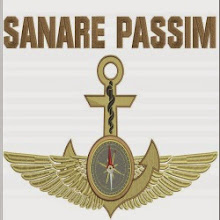How important can it be?
Original Post Date: 5/4/08
No, they don't stop bagging. Well, they rarely do it themselves. But the point is that they see that it is continued. Why is that, anyway? Does it have something to do with the proven need for artificial respiration in the non-breathing, or does it have more to do with an accepted level of competency among EMS personnel? Simply put, it's hard to screw up a bag valve mask, and it is hard to miss the indications for positive pressure ventilation, so the assumption that paramedics can bag a patient that clearly needs it is pretty well supported. But what if the treatment is CPAP, or vasopressors, or antihypertensives? Then how important can it be, really? Or, how likely is it that the paramedic really knows what he's doing at all? Evidence and perception would say not very. Facing facts, the common holding behind the ER doors is that paramedics know how to bag, compress and drive. So, by extension, there is no need to continue any treatment beyond those three things if the EMS crew started it.
Take CPAP, for example. CPAP is still in its infancy when it comes to EMS and thus is largely scoffed by the hospital. Some physicians actually feel we do these patients a disservice by precluding the need for intubation. I would be more inclined to believe we're cheating doctors out of skills, but I digress. This sort of poison-pen attitude spills over into the nursing staff, promoting the notion that this treatment, on which some patients are DEPENDANT when they present is unnecessary and not worth continuing. To complete the vicious circle, when the patient decompensates after treatment is stopped, whatever EMS did must be to blame.
Part of this, I agree, is about personalities. Personalities are largely born from experiences, and many of the nurse's first experiences with EMS were long ago when EMT's did little more than drive and CPR. And, they listen to paramedics talk, unfortunately supporting the idea that they aren't terribly bright. I'm not sure I would listen to a doctor who told me a patient was FUBAR, so I don't think I can blame them for feeling the same way. Perhaps the most damning piece of evidence is the frequent incidence of EMS patient mismanagement, or at least perceived mismanagement.
A bigger component, perhaps the biggest, is a system wide educational failure. Everybody: physicians, nurses, respiratory therapists, paramedics and EMTs just stop learning. Professionals who are taxed so heavily at work rarely feel inclined to study or read after hours. This leaves them believing that whatever they learned in school is still current, no matter how long ago that was. Enter a handful of current, cracker-jack providers who read and study and review new information almost daily, brining that knowledge to the bedside. Imagine the audacity—challenging 20 year-old ideas and outdated theory with newly PROVEN interventions. How Dare They! What better way to deal with unfamiliar knowledge but to ignore it?? Paging the emperor: Your new clothes are ready!
A paramedic friend of mine transported a patient the other day with a bifasicular block on 12 lead. He reported this with the proper gravity to the receiving facility and they said "What's that?" Imagine, education that (should be/is)part of initial paramedic training is a complete mystery to an experienced nurse. Is that necessarily the individual's fault? Not completely; maybe you could argue (I'm sure the nurse would) that the facility should teach them better. Most likely though they would say it's not important for them to know because it's not written on the ER Flow sheet. What the fact is; however, is that everyone is responsible for their own education and, by extension, the lack thereof.
The larger medical community believes we, EMS, don't have the capacity to manage these complex treatments. Medics should know that we can't afford to be without it.
Next: PRIDE

No comments:
Post a Comment